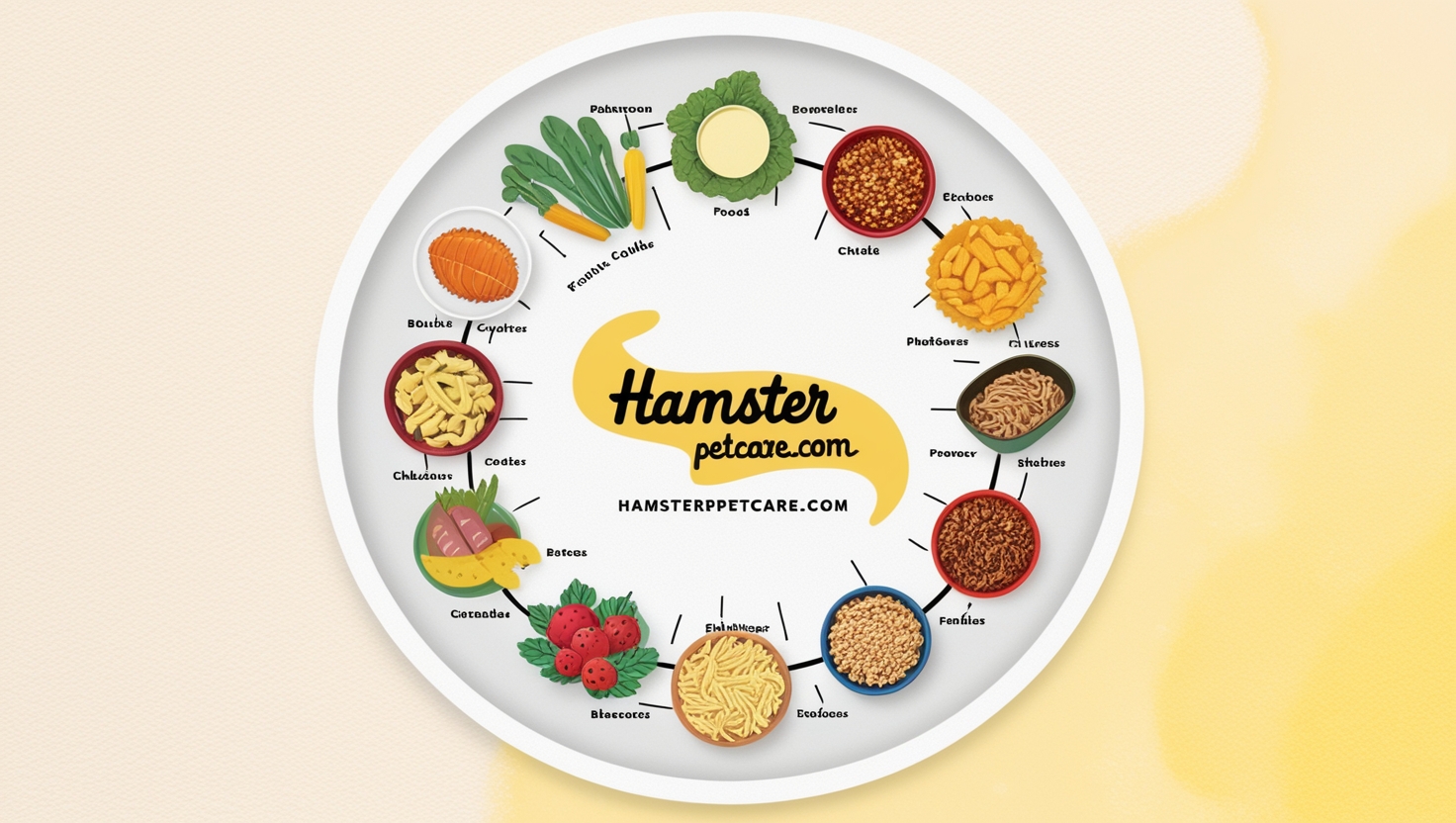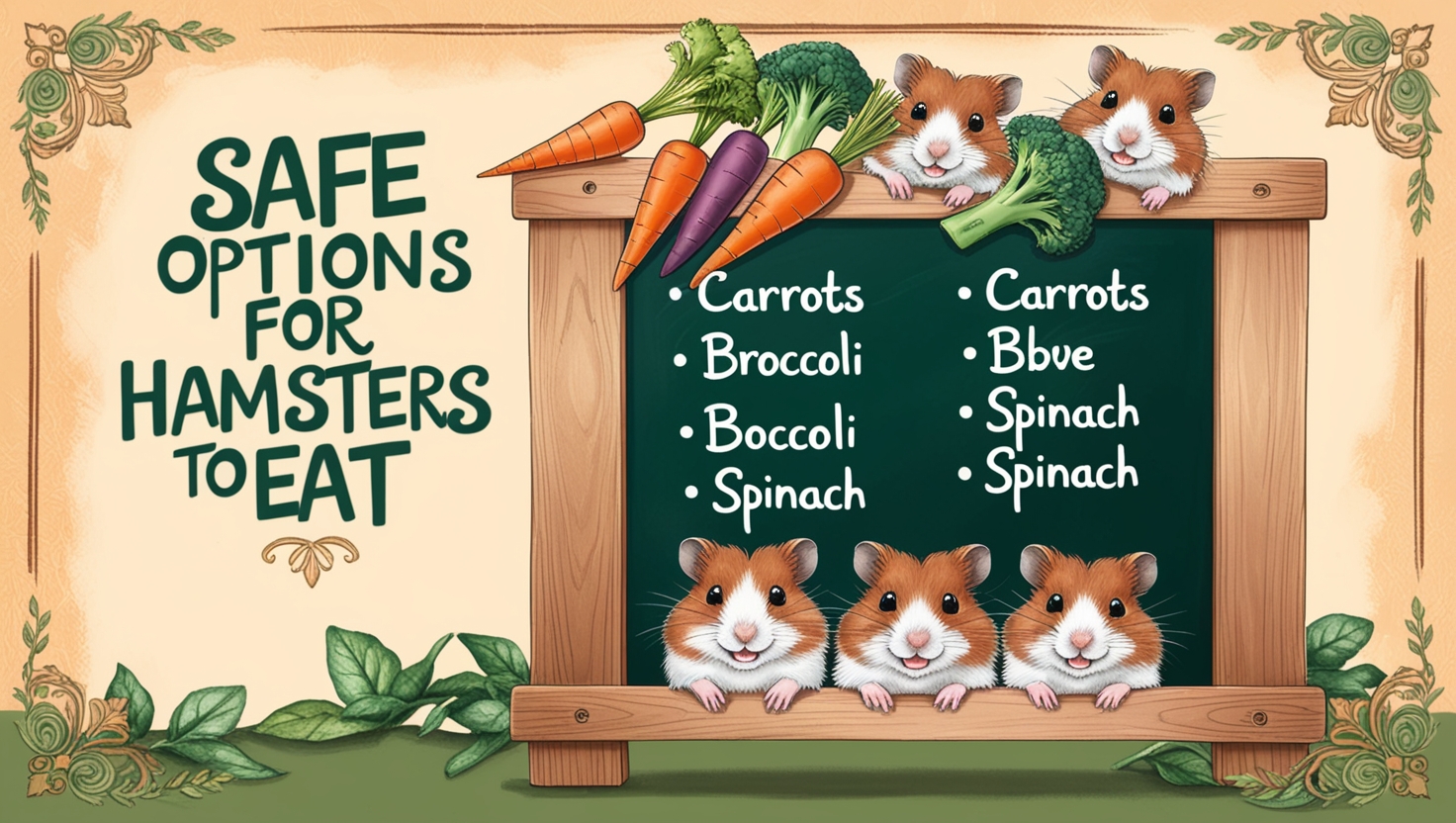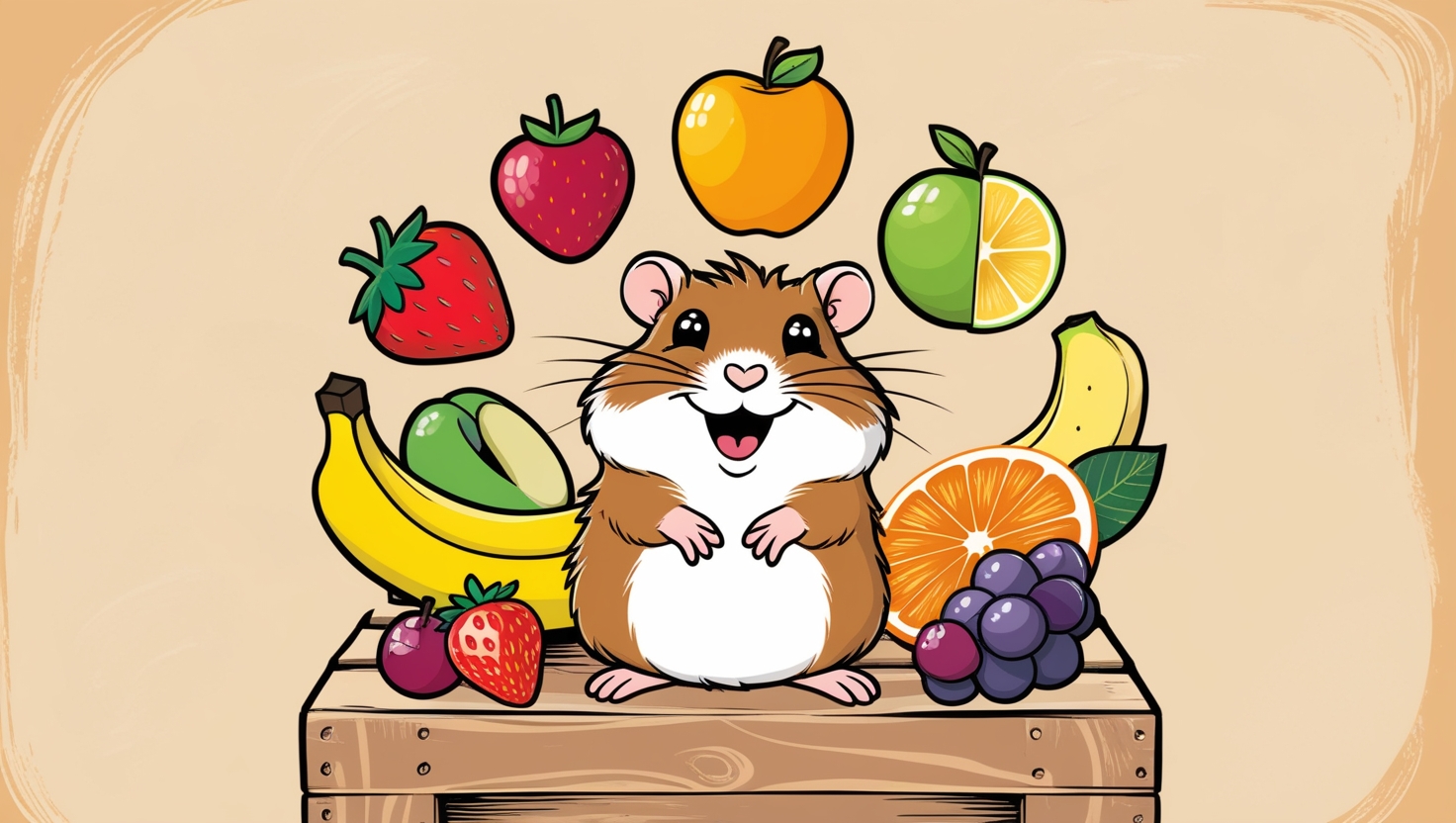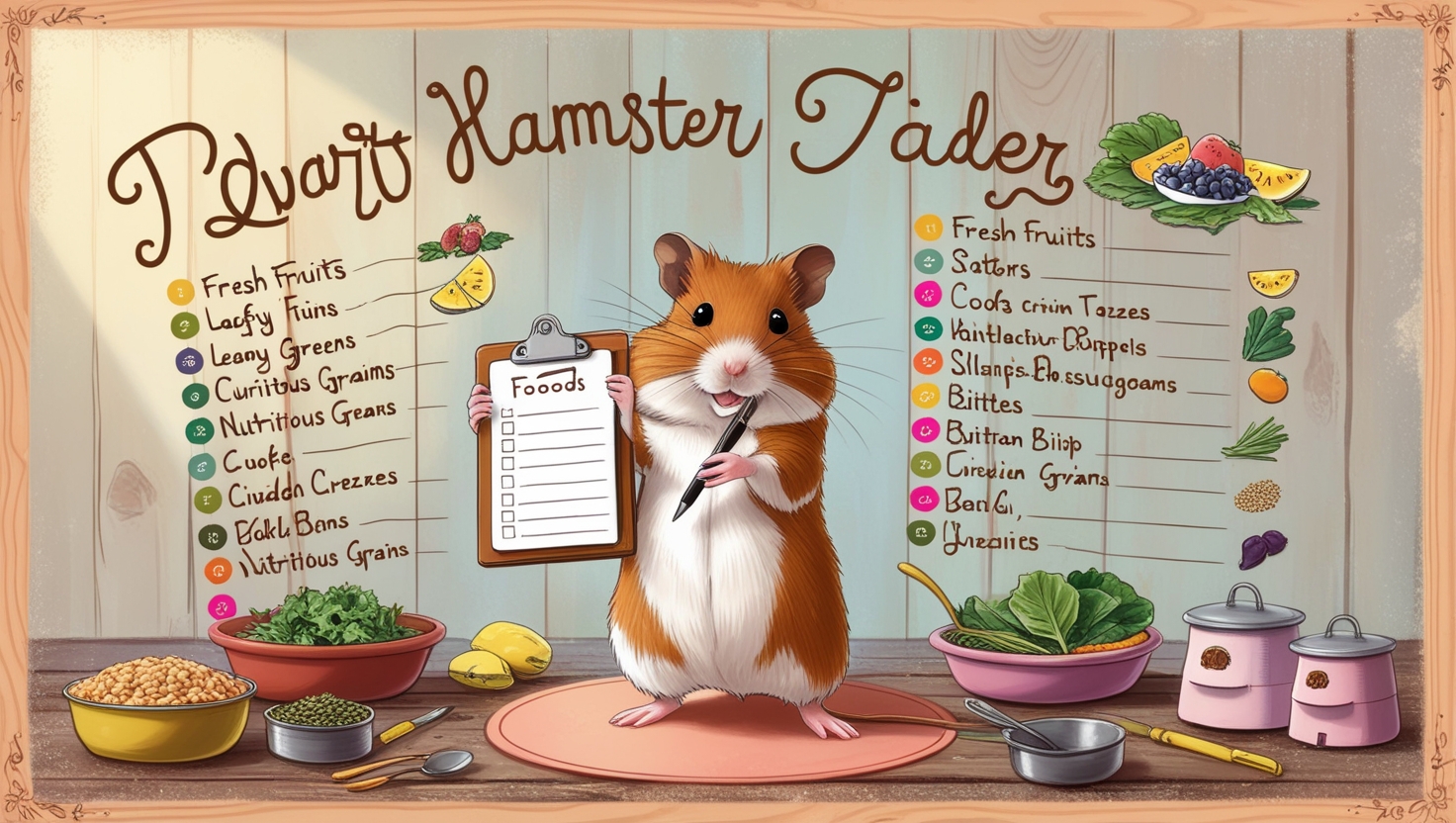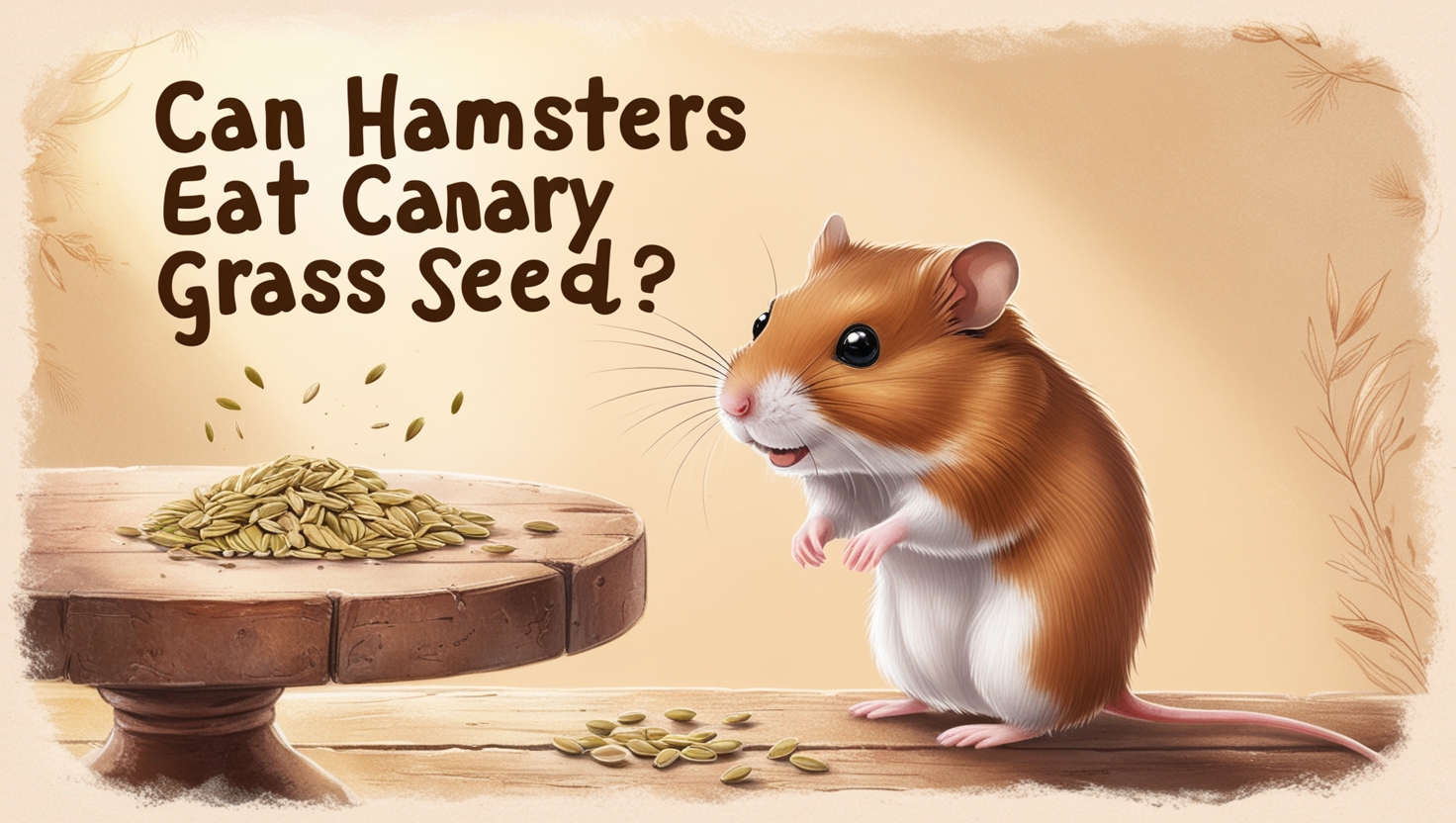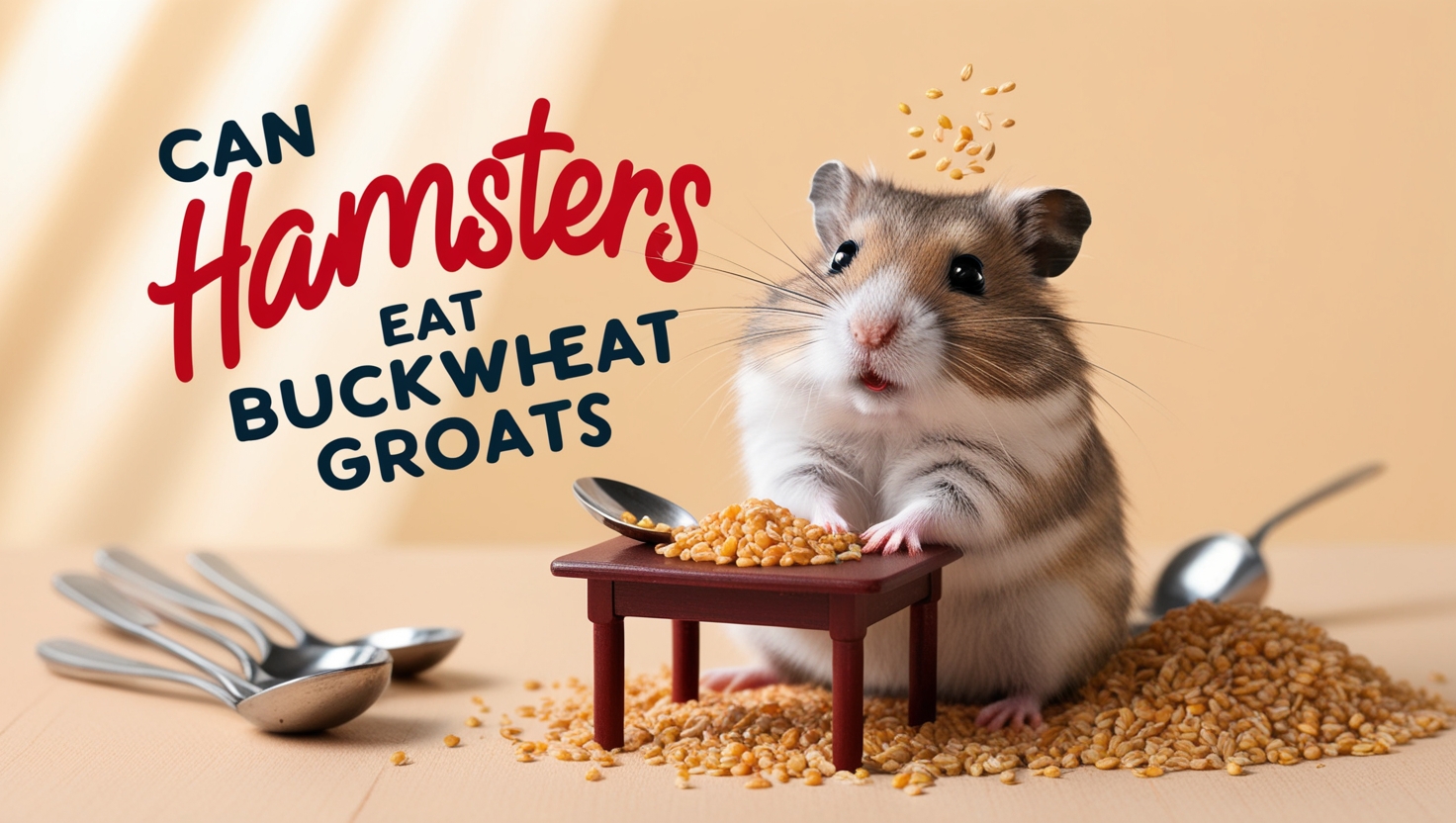Ah, hamsters! Those little balls of fur that captivate our hearts. When it comes to feeding them, many questions arise. And perhaps you’ve wondered, can they relish the sweet tropical delight of pineapples? Well, read on!
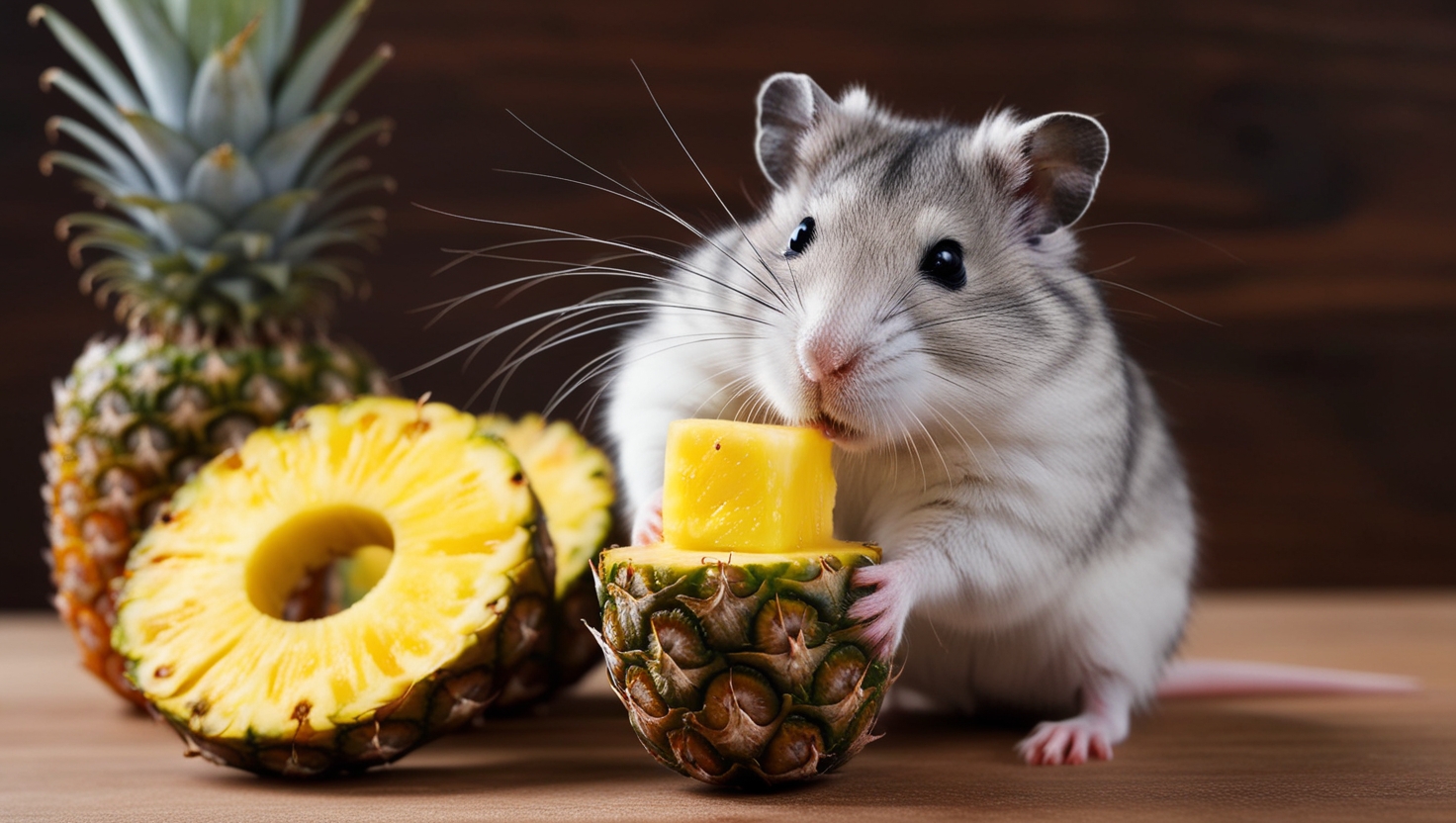
Can Hamsters Eat Pineapple?
Our cuddly friends have a sensitive digestive system, quite different from ours. While pineapples are packed with vitamins and minerals beneficial for us, the story isn’t exactly the same for hamsters.
- Brief Understanding of Hamster Digestion
Hamsters are naturally inclined towards a diet of grains, seeds, and occasional protein. They have a specific digestive cycle that breaks down these foods efficiently. Fruits, although enjoyed by many, aren’t staples in their natural diet. - Pineapple: Composition and Nutrients
This tropical fruit, loved by many, contains vitamin C, manganese, and enzymes. But how does this composition sit with hamster digestion? Let’s delve deeper.
Benefits of Pineapple
It’s not all doom and gloom! Pineapples, when fed appropriately, can have some perks for our furry pals.
- Vitamins in Pineapple for Hamsters
Certain vitamins in pineapple, like Vitamin C, can benefit hamsters. They aid in keeping their immune system robust and their fur glossy. - Hydration Through Pineapple
The high water content in pineapples can help in hydrating our little buddies, especially on warm days.
Potential Risks
However, as with all good things, moderation is key. Too much pineapple can pose certain risks.
- Sugar Content in Pineapple
Pineapples are naturally sugary. For small animals like hamsters, excessive sugar can lead to diabetes and other health issues. - The Issue with Pineapple Acidity
Acidic foods can upset the hamster’s stomach. Regular feeding can cause discomfort and long-term health problems.
Feeding Guidelines
So, if you decide to treat your hamster with some pineapple tidbits, how should you go about it?
- Pineapple Serving Size for Hamsters
Less is more. A small piece, once a week, is ample to keep things safe and enjoyable. - Preparing Pineapple for Your Hamster
Always ensure the pineapple is fresh, thoroughly washed, and free from any pesticides. Serving it in tiny, bite-sized chunks can be delightful treats.
Alternatives to Pineapple
If you’re looking to diversify your hamster’s diet with fruits, there are plenty of alternatives.
- Berries for Hamsters
Blueberries, strawberries, and raspberries in moderation can be excellent choices. - Hamster-friendly Fruits and Veggies
From cucumbers to apples (without seeds), the list is extensive. Ensure they’re fresh and pesticide-free.
Signs of Hamster Discomfort
After feeding them pineapples or any new food, it’s essential to observe them.
- How to Identify Digestive Issues
If your hamster is lethargic, shows a change in fecal matter, or has a bloated tummy, it might be a sign of digestive trouble. - When to Visit the Vet
If symptoms persist or if your hamster shows signs of distress, a vet visit is crucial.
Nutrition content for 100 grams of raw pineapple
Calories: 50
Total Fat: 0.1 g
Saturated fat: 0 g
Polyunsaturated fat: 0.1 g
Monounsaturated fat: 0 g
Cholesterol: 0 mg
Sodium: 1 mg
Potassium: 109 mg
Total Carbohydrates: 13 g
Dietary Fiber: 1.4 g
Sugar: 10 g (mainly from natural sugars)
Protein: 0.5 g
Vitamins and Minerals:
Vitamin C: 48 mg (80% of the Daily Value)
Calcium: 13 mg
Iron: 0.3 mg
Vitamin B-6: 10% of the Daily Value
Magnesium: 8% of the Daily Value
Folate: 18 μg (5% of the Daily Value)
Manganese: Over 50% of the Daily Value
Other Compounds:
Bromelain: Pineapple is particularly known for its bromelain content. Bromelain is an enzyme that can help in breaking down proteins and has been associated with various health benefits, including reduced inflammation and improved digestion.
This nutritional breakdown can slightly vary depending on the ripeness and variety of the pineapple, as well as the conditions in which it was grown. It’s always a good idea to refer to specific product labels or databases for more precise nutritional details.
One of the most adorable little animals around the world, hamster has become very popular as a pet in recent years. This small rodent is very energetic, curious, sweet and easy to take care off.
Hamster is the best option for people who want to have a pet, but do not have enough space for bigger animal, such as cat or dog. It is also a good option for older children and can help them learn about taking care of others, natural life processes and responsibility. If you love animals, this intelligent cute mouse will certainly make you happy.
Hamsters are not demanding pets. You don’t need special conditions to satisfy them. The most important thing is to provide your pet a good accommodation and toys to play and to keep it healthy with good nutrition.
Hamsters are playful and they need activity, since they are very prone to obesity. Place a running wheel into your pet’s cage, so it can play while you’re sleeping. Since hamster is nocturnal being, you should let it outside in the evening and spend some time with it. Your new friend will quickly get used to you and the environment.
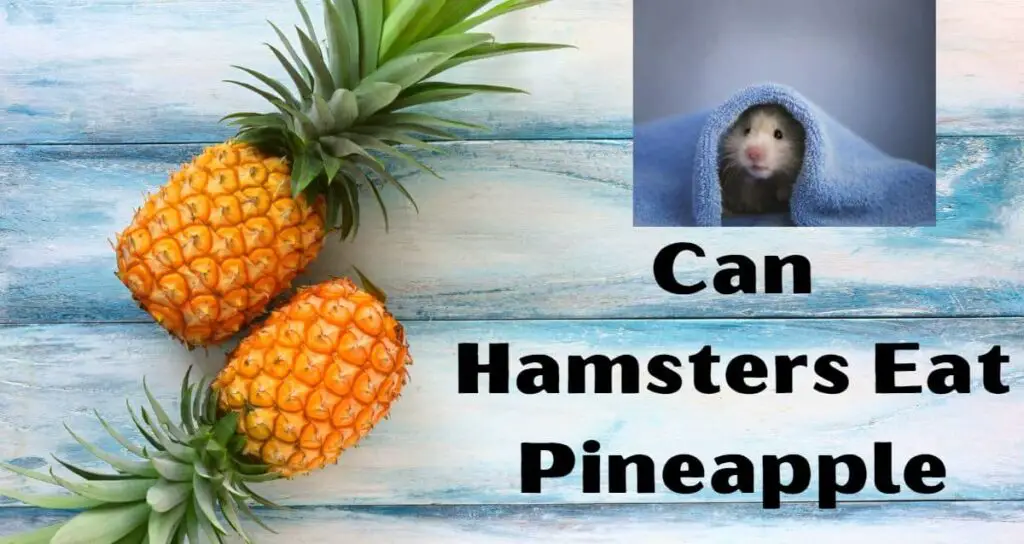
Healthy diet for your hamster
Hamsters love to constantly have something in their teeth. Since their teeth are growing indefinitely, you should provide your pet pieces of wood so it can keep them in good shape. When it comes to food, hamsters need balanced diet based on seeds mix. You can purchase quality ready-made hamster mix in any pet shop. Add some nuts to the menu and several servings of fresh fruits and vegetables.
It is also recommended to enrich its nutrition with some animal origin proteins and diary products. You can feed it small portions of boiled eggs, cooked chicken and skimmed milk or yogurt once in a while.
Fresh fruit and vegetable is recommended to be given several times a week. A portion of raw fruit or vegetable every third day would be sufficient. Fresh food improves hamster’s digestion and prevents constipation and obesity.
However, too much of it can lead to diarrhea, because of water content, sugars and acids.
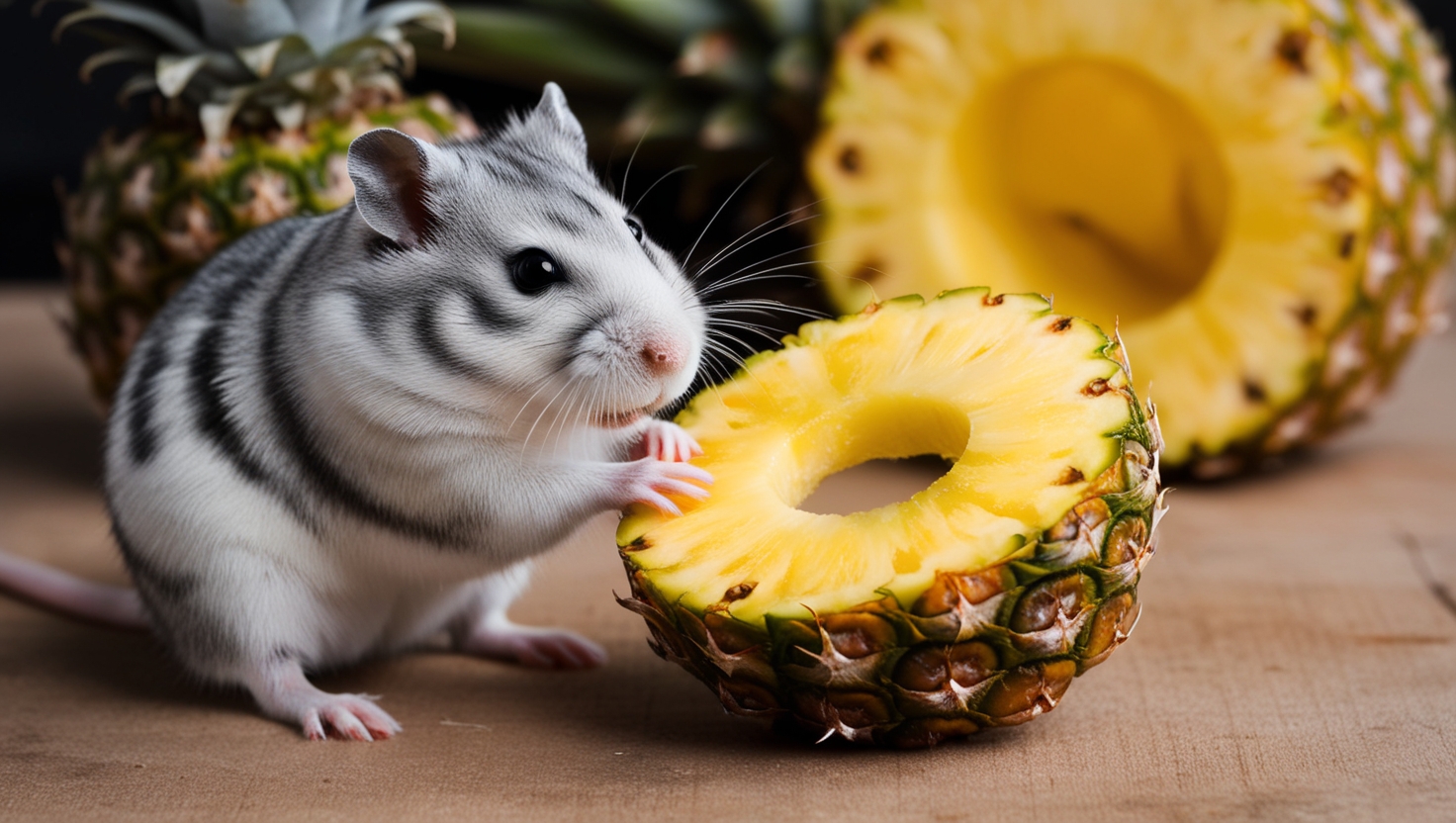
Avoid pineapple in hamsters’ diet
Pineapple is very juicy and sweet tropical fruit. It is very aromatic and flavorful both for us and for our little friends. Your pet would certainly love it, but the best advice is to cut it off the menu. Hamsters are very sensitive to acidic and sugar content of all fruits. Most tropical and citrus food contain too much acid and sugar, which can be harmful to their delicate bellies. Too much sugar leads to diabetes and obesity. Acids would irritate hamster’s tiny stomach, make it sick and get it diarrhea.
Pineapples contain a lot of acids and sugar, so they should be avoided. However, some species could have very small amounts of pineapple once in a while. You could give Syrian and Robrovski hamster small serving of pineapple as an occasional treat. It should be completely avoided for smaller species, such as Winter white dwarf, Russian Campbell dwarf and Chinese.
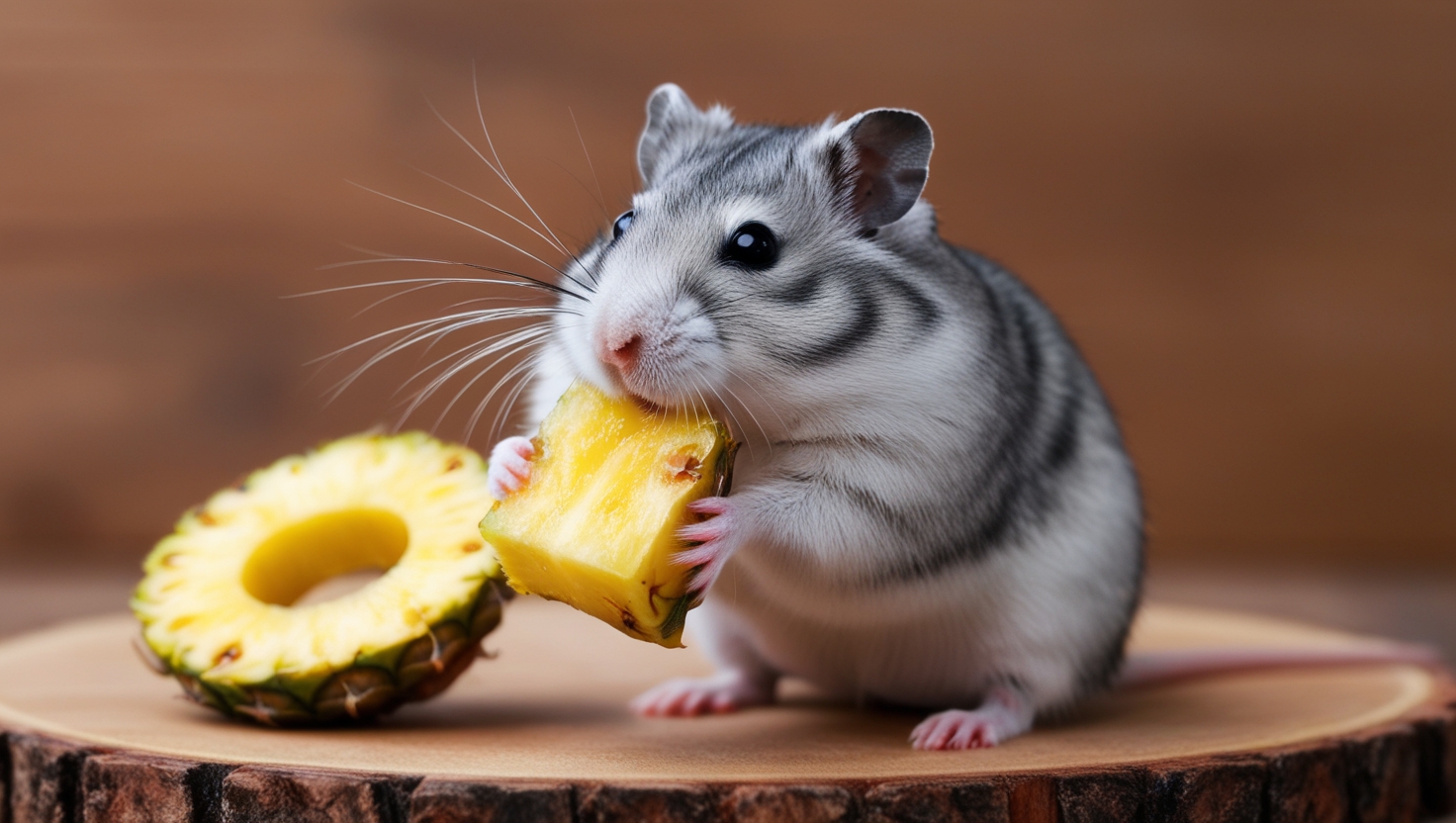
Conclusion
Feeding our adorable hamsters is both a joy and a responsibility. While they can enjoy a variety of fruits, including pineapples, moderation is essential. By observing and understanding their needs, we ensure they lead a happy and healthy life. Cheers to many more delightful nibbles!
For more insights on hamster diets, check out Hamster Care 101.
FAQs
Can hamsters eat canned pineapple?
No, canned pineapples often have added sugars and preservatives that aren’t suitable for hamsters.
How often can I feed my hamster pineapple?
It’s best to offer pineapples as an occasional treat, maybe once a week in small amounts.
Are pineapple leaves safe for hamsters?
No, the leaves can be tough and might cause digestive issues. Stick to the fruit flesh.
Do all hamsters like pineapples?
Each hamster is unique. Some might relish it, while others might not show interest.
Can baby hamsters eat pineapple?
It’s best to introduce any new food, including pineapple, when they’re a bit older to ensure they don’t face digestive issues.
What other fruits can hamsters eat?
Apart from pineapples, hamsters can have apples (seedless), blueberries, strawberries, and more, but always in moderation.


 (1 votes, average: 4.00 out of 5)
(1 votes, average: 4.00 out of 5)